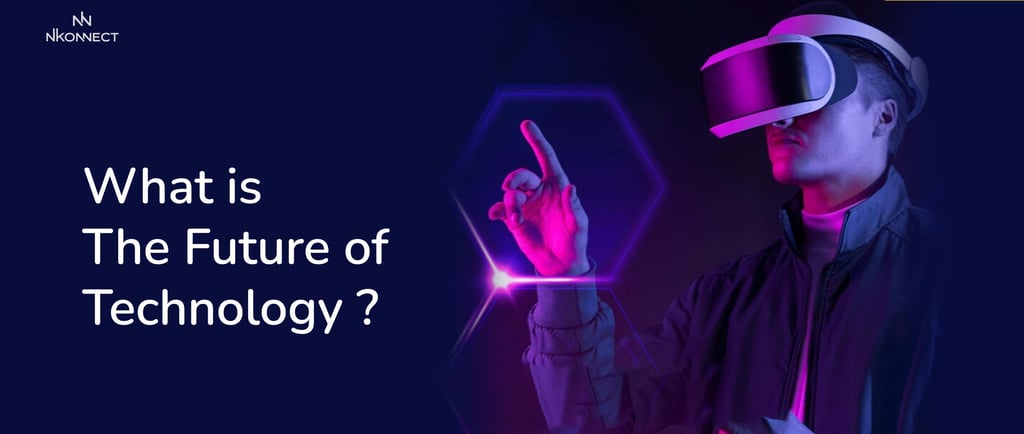What is the Future of Technlogy ?
The rapid pace of technological advancement in recent years has reshaped industries, revolutionized lifestyles, and sparked imaginations worldwide. Looking ahead, the future of technology holds immense promise and potential, ushering in an era of unprecedented innovation and transformation across various domains.
TECHNOLOGY


The rapid pace of technological advancement in recent years has reshaped industries, revolutionized lifestyles, and sparked imaginations worldwide. Looking ahead, the future of technology holds immense promise and potential, ushering in an era of unprecedented innovation and transformation across various domains.
Emerging Technologies:
Artificial Intelligence (AI) and Machine Learning (ML): AI and ML are poised to drive automation, enhance decision-making processes, and revolutionize industries such as healthcare, finance, and transportation. From predictive analytics to personalized experiences, AI is redefining what's possible.
Internet of Things (IoT): The interconnectedness of devices, sensors, and systems through IoT is creating smart environments that optimize efficiency, improve safety, and enable seamless connectivity. Smart homes, cities, and industries are on the horizon, powered by IoT innovations.
Blockchain and Cryptocurrency: Beyond Bitcoin, blockchain technology offers decentralized solutions for secure transactions, supply chain management, and digital identity verification. The potential applications of blockchain span across finance, logistics, healthcare, and beyond.
Virtual and Augmented Reality (VR/AR): VR and AR are transforming entertainment, education, and business by immersing users in virtual experiences and enhancing real-world interactions. From immersive gaming to virtual training simulations, VR/AR technologies are evolving rapidly.
Impact on Industries:
Healthcare: Technology is revolutionizing healthcare with telemedicine, wearable devices, AI-driven diagnostics, and precision medicine. Remote patient monitoring, robotic surgery, and personalized treatment plans are becoming mainstream.
Finance: Fintech innovations such as digital payments, blockchain-based transactions, robo-advisors, and peer-to-peer lending are reshaping the financial landscape, making transactions more accessible, efficient, and secure.
Transportation: Autonomous vehicles, electric mobility, smart infrastructure, and hyperloop technology are transforming transportation systems, paving the way for safer, sustainable, and efficient mobility solutions.
Challenges and Considerations:
Ethical and Privacy Concerns: As technology advances, ethical considerations regarding data privacy, AI ethics, algorithm biases, and cybersecurity become paramount. Balancing innovation with responsible use is crucial.
Digital Inclusion: Bridging the digital divide and ensuring equitable access to technology and digital literacy are essential for harnessing the full potential of technological advancements and fostering inclusive growth.
Conclusion:
The future of technology is dynamic, promising, and filled with possibilities. Embracing innovation responsibly, addressing challenges proactively, and fostering collaboration across sectors will shape a future where technology serves as a catalyst for positive change, economic prosperity, and human advancement.


